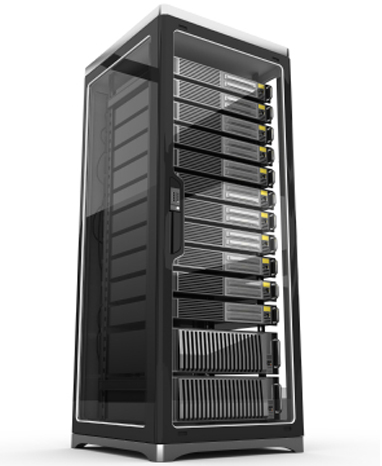

Whether you've got two computers or two hundred, a server can be one of the most useful tools that an office can have, and they don't have to break the bank, starting at only £200. Servers aren't just a handy place to store your files - they can offer the best in security and accessibility for your office, as well as easy email management and software licensing.
If you or your colleagues need to access your work files or your emails from home, servers offer easy remote access, giving you the ability to access your desktop, files and emails whilst you're away from the office. Fully secure, this gives you full flexibility and allows you to work from home, other offices, or when you're out on the road.
Server security offers an extra layer of protection for your files, giving you extra peace of mind. Server firewalls, antivirus, anti-intrusion and spam detection filter out threats before they even reach your computers, stamping out problems at the source.
Servers also offer the ability to connect all of your PCs, smart phones and mobile devices to the same network, meaning that you can synchronise emails, appointments and files to all devices. You can also keep all your files on the server, meaning that they can be accessed from any device on the network - no more having to pass files around on USB sticks or emailing them to each other. Servers can control access to files by security groups (such as financial and personnel) or on a per user basis to offer protection against unwanted eyes.
Finally, if you need licenses for any software that you might use - anything from security software to specialist technical software - it can often be more economical to buy network licenses, licensing the maximum number of concurrent users rather than having to purchase a license for each computer. Having a server provides a central location for storing these licenses and managing access to them.
| Unsure of some of the terms we've used? We've handpicked a few definitions for you below, or you can visit our glossary for a comprehensive list. Click on 'read more' to see the full definition. | |
| Client: In computing terms, the word client denotes a relationship between devices in which a client is the receiver. For example, in an office set-up where the server provides services such as stored data, the computers that connect to access that... read more | |
| Cloud Computing: Cloud computing refers to various online services, particularly the ability to store, edit and retrieve your files online by using online data storage. The 'cloud' refers to the internet, representing the network of online services, and any... read more | |
| Database: A database is an organised collection of data, stored in one or more tables that contain multiple fields, allowing for easy cataloguing and searching. Databases need database management software to sort the data and utilise it into a useful... read more | |
| Intranet: Unlike the internet, which refers to a global network, an intranet is a private network that exists purely within one organisation. It may refer to an organisation's internal website, or may be a more extensive network that consists of one ... read more | |
| Server: A server gets its name because it serves information to computers and devices that connect to it, which are called clients. Servers tend to be built using hardware that is more suited to being in constant use, but any standard computer can ... read more | |
| Uninterruptable Power Supply (UPS): A UPS is designed to protect your computer equipment from power failure and surges. A UPS sits between your computer and the mains power; if the power is cut the computer continues to run from the UPS battery, protecting your hardware and s... read more |